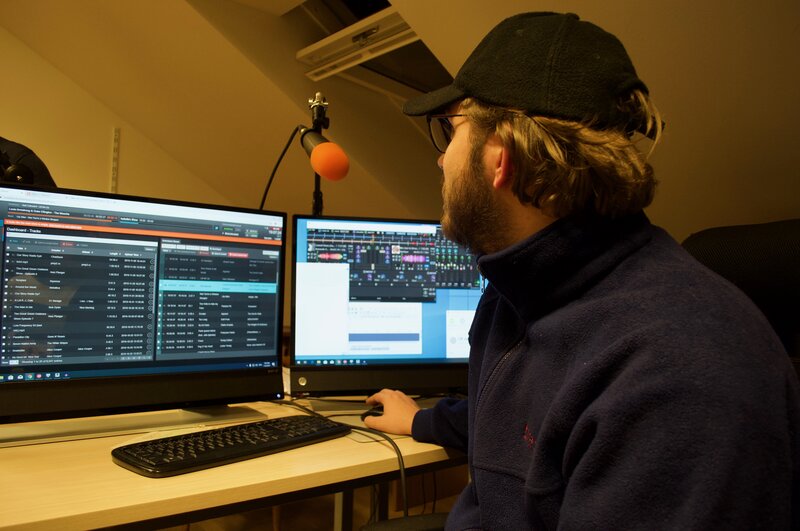What is a community radio station, and do you want to be part of one?
The first thing to know about community radio is that it is different from commercial radio in three key ways, because it is:
- Local
- Nonprofit
- Independent
Community radio is a labour of love: something you have to be passionate about.
Unlike commercial stations with professional DJs and lots of ads, most community stations rely on donations and volunteer DJs and content contributors. That means they usually run on shoestring budgets, but offer a richer variety of programming than commercial stations beholden to mainstream formats. You’ll hear music ranging from jazz to underground hip-hop, classic rock to experimental modern music, along with local news, quiz shows and even some types of theatre on community radio stations. If you are looking for a way to share your interests and concerns with others in your area, community radio offers an unrivalled platform for creativity.
Sometimes community means a community of interest, like a specific musical genre, artist, politics or hobby. But most of the time, community means a local area. However you define community, the station’s programming should serve the people in it. What do they need to know? What stories are not being told by other media outlets? How can your station be a voice for those who don’t have one? (Another key principle of radio is that it is probably the most democratic medium in the world: see this UNESCO handbook on community radio for more background and fascinating case studies.)
Once you start answering those questions about how your station can serve your community, you’ll be well on your way to a programming schedule that is entertaining, informative and also popular.
Setting up a community radio station
Now that you understand the basic principles of community radio, you can start tackling the practical questions. How do you go about setting up a community radio station? What equipment do you need? And what legal permissions or licences are involved?
In some countries, community radio stations can be licensed to operate on low-power transmitters that broadcast over a limited range; the typical radius would be less than five kilometers. This is a good option if you want an FM signal based in a physical place. However, the procedure to acquire such a licence can be almost as complicated and time-consuming as for full-power stations.
Luckily, there is an alternative.
Using an internet radio platform like Airtime Pro is a fast and easy way to set up a community radio station. There are minimal upfront costs, less licensing hassle and more creative control. (Note that doesn’t mean there are zero costs or that you can say or broadcast anything you want on your online radio station! In many countries there are laws about what you can say or do on the airwaves. Also see our blog post about music licensing rules to find out about the music you can play.)
To sound professional, you will need a studio space to broadcast from, as well as some basic equipment like a laptop, microphone and headphones. (For the full list, see our blog post on 10 Essential Pieces of Equipment for Online Radio Newbies).
You should also think about your programming: what kinds of shows you aim to broadcast and the days and times you can cover. For more on setting up shows, see our blog post on starting your own online radio show.
Setting up a community radio organisation
Now, you could do all of those things by yourself if all you wanted was to have your own internet radio station. But for a community radio station, you need a group of people. Ideally, your group should be diverse enough to represent the people who live in your area, so that your programming speaks to their needs and interests. Having a group is also key to making your station a legal entity that can interact with other nonprofits, businesses and local authorities on a professional basis. On the risk-management side, it means you yourself won’t be legally or financially responsible for the station.
On the more positive side, becoming a legal entity means your station will be eligible to receive funding, especially if you take the extra step and write a business plan (see this useful template put together by Radio Regen in the UK).
Community radio stations on Airtime Pro
These days we see a lot of people looking for information about community radio using the search term “community radio near me”. When it comes to online radio, however, your neighbourhood expands to other cities and towns and even other countries. At Airtime Pro, we consider our platform to be a community in its own right. Some of the community stations we are most proud of include:
One final thing worth mentioning is that most community radio stations would qualify as nonprofits, making them eligible for a 30% discount on any annual plan from Airtime Pro. (See the full details here.)
Want to see how Airtime Pro can support your community station? Start your free trial today.


2 Comments
BROTHER MOSES
GREETING FROM MOSES ALL FROM UGANDA I WOULD TO BE HELPED ON EQUIPMENT I WOULD USE TO START UP A COMMUNITY RADIO STATION WHICH WILL HELP MY COMMUNITY TO GET INFORMATION.
Manolis Zografakis
Hi there! Have a look at this post: https://www.airtime.pro/10-essential-pieces-of-equipment-for-online-radio-newbies/